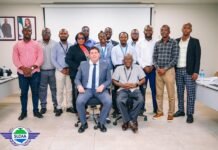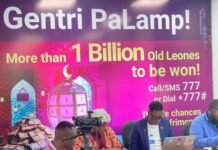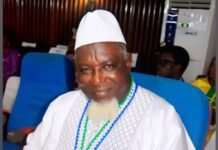By Abuabkarr Harding
As a global champion, President Julius Maada Bio, on the 19th September, 2022, addressed the Transforming Education Summit on the topic, “Towards Education Transformation”, and using the country’s examples to urgently address what has been aptly referred to as a learning crisis.
“In Sierra Leone, we have been aggressively transforming our education sector since 2018. We have done so in order to address questions around access, inclusion, quality, retention, completion, and transition to technical, vocational, and higher education.
“Improving educational outcomes in a country where there had been underinvestment in education and failing standards was clearly a challenge. School infrastructure, curriculum, policies, and governance had to be urgently addressed.
“Girls, pregnant girls, poorer learners, learners in rural areas, learners with disabilities had unequal access to the education that was on offer. Learners had uneven access to foundational learning, food, teaching and learning materials, WASH facilities, trained teachers, and more. More importantly, we did not have enough money to undertake the necessary reforms we had envisioned,” he said.
The President noted that because of a strong political will and a commitment to his people, four years later, his Government was able to increase enrolment across board by more than one million additional learners, adding that they had also achieved gender parity in enrolment.
“We have revamped our curricula at all levels to include critical thinking, comprehension, computational thinking, creativity and civic education. Girls studying STEM subjects can be educated from primary through university tuition-free. Pregnant girls can once again go to school, and we are supporting learners with disabilities with specialized teaching and learning materials. More students are sitting and passing exams than ever before in our country’s history.
“These are but a sample of the achievements we are proud to share as a nation. How did Sierra Leone do it? We focused on goals, investment and inclusive and innovative strategies,” he stated.
President Bio also emphasized that in the first place his Government was clear that their goal was to make education the main vehicle for national development, adding that by making basic and secondary education free, they had sent a message to every Sierra Leonean that they, too, deserved to be included.
“Secondly, we raised our domestic investment. We raised education’s share of the domestic budget to 20% – schools fees and exam fees are now a thing of the past in our Government-supported schools. We have expanded school feeding and hired thousands of new teachers and increased their salaries even during COVID.
“Thirdly, we innovated in our policies and technology tools, always with a view to improve inclusion and access. We adopted the Radical Inclusion policy to deliberately support those most at-risk of not reaping the benefits of an education,” he said.
It could be recalled that Sierra Leone, earlier this year, brought together the 14 countries that signed the Freetown Manifesto to make a commitment to Gender Transformative Leadership in and through education.
The 18-20 May 2022 gender-transformative leadership workshop was hosted by the Ministry of Basic and Senior Secondary Education and the Gender at the Centre Initiative, a programme implemented by UNGEI and UNESCO IIEP and supported by UNICEF, GPE, UNESCO and the Governments of Italy, France, United Kingdom, Germany and the European Union.
“But we are only getting started because I believe that SDG 4 is essential to achieving all other SDGs. We stand ready to work with partners to continue to develop this vision and improve education outcomes in Sierra Leone.
“Personally, I met with various stakeholders, including school children, in preparation for this summit. This is why today I am pleased to announce a new level of ambition to make education an even stronger driver of gender equity, inclusion and sustainable national development.
“Today, Sierra Leone commits to cutting in half the number of out-of-school children of primary school age by 2030, compared to today. We will launch an Alliance for Foundational Learning through which we further commit to cutting the rate of learning poverty in half or more by 2030,” he concluded.




